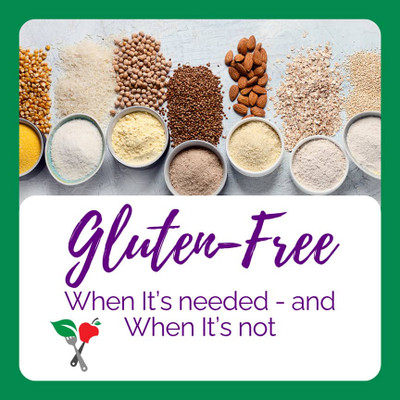Improving Your Cardiovascular Health One Step at a Time
Among adults, only about 20% had high cardiovascular health. The other 80% had moderate to low cardiovascular health. What is even scarier is the results of the children. Roughly 30% had high cardio health, but the older the children are, the worse they found their cardio health was.
Within the past few months, The American Heart Association (AHA) released a new criteria for determining someone’s cardiovascular health. What used to be known as “Life’s Simple 7” has been changed to “Life’s Essential 8”. Individuals are scored on each of the 8 criteria and the final score represents the level of cardiovascular health the individual has. Individuals are scored from 0-100. Zero to 50 means their cardiovascular health is “low”, 51-79 means their cardiovascular health is “moderate”, and 80+ means their cardiovascular health is “high”. I will set a link as to how they came up with Life’s Essential 8 here.
Life’s Essential 8 include:
1. Diet
2. Physical Activity
3. Nicotine
4. Sleep
5. BMI
6. Blood Lipids
7. Blood Glucose
8. Blood Pressure
A research article was recently published by the American Heart Association that calculated the total score of over 23,000 participants. The results of this study were staggering… Adult men were rated lowest, but between adults and children, the average score ranged from 62 to 67 which is considered “moderate”.
“So, what can we do to improve these scores and ultimately increase everyone's cardiovascular health?” To answer this, I have compiled a list of things to improve your cardiovascular health based off of “Life’s Essential 8”. Just for you!
1. Eating a Well-Rounded Diet
The typical American diet is known to be not too great when it comes to health. It is high in saturated and trans fats (the not too good ones), carbohydrates, added sugars, sodium, and harmful additives. At the same time, it is low in quality protein, fiber, fruits, vegetables, and whole grains.
A well-rounded diet should instead include a variety of fresh fruits and vegetables. The Dietary Guidelines for Americans recommend at least 2 ½ cups of vegetables and 2 cups of fruit per day. A great piece of advice is to eat the rainbow. This basically means that instead of eating the same vegetable for all your servings, you should consume an array of different vegetables that have different colors. This makes sure that you are consuming all the essential nutrients that are available in those foods.
Another aspect of an overall healthy diet is consuming whole grains. For whole grains, the Dietary Guidelines for Americans recommend that half of the grains that are consumed throughout the day should be whole grains. Examples of whole grains include whole wheat bread, brown rice, oatmeal, and whole wheat pasta. For more on whole grains, you can click the link here to an article by Mayo Clinic.
One important aspect of the diet that is looked over is the consumption of lean protein sources. Proteins are the building blocks for lean body tissue (muscle, bones, and tendons). Without adequate protein intake and quality, someone will start to feel weak and fatigued more easily. They will also be more susceptible to injuries as well as slower recovery from those injuries because there are no building blocks to rebuild the injured body part. This is why it is important to consume enough quality sources of lean protein. These sources include, but are not limited to, skinless poultry, fish, beans, greek yogurt, tofu, and eggs.
A great representation of a well rounded diet is the USDA MyPlate method. They’re website is very informative and helpful for individuals who struggle to understand what it means to eat a well-rounded diet.
2. Move Around!
Physical activity benefits the body in many ways. One of those benefits is that it mitigates the risk for chronic diseases such as cardiovascular disease. It does this by helping reduce body weight, reduce blood pressure, and increase insulin sensitivity. How much exercise and what exercises to do is dependent on the individual.
According to the American Heart Association, the average adult should get at least 150 minutes of moderate to intense aerobic activity per week. Aerobic activities include walking, running, biking, and swimming. They also recommend adding moderate to high intensity muscle-strengthening activities at least 2 times per week. These activities include, but are not limited to, weight training, yoga, resistance bands, or even bodyweight exercises (push ups, sit ups, squats).
There are plenty of free exercise programs found online, so everyone can find the one that fits their lifestyle and goals! The Center for Disease Control and Prevention (CDC) website has more detailed information on physical activity recommendations for different age and ability levels.
3. Decreasing or Eliminating Nicotine Use
Cigarettes, vapes, chewing tobacco, or any other product that contains nicotine can decrease your overall cardiovascular health by a significant amount. The nicotine in those products cause the user’s blood vessels to narrow and their heartbeat to accelerate. This puts great stress on the blood vessels and the heart. Over time, this stress can lead to hypertension, heart disease, heart attacks, and strokes.
Cigarettes smoking and second-hand smoke can increase the risk of plaque in the arteries (also known as atherosclerosis) that can increase blood pressure and speed up the harmful process that nicotine is already having on the body. The AHA has great information on how to quit nicotine and how to cope with withdrawal.
4. Get Enough Rest
Sleep is, in my opinion, one of the most underrated (or “slept-on”) aspects of life. I know that there is so much to do in this world and so little time to do it. As a graduate student, I find myself having a lot to do, but not much time to do it. I have many late nights studying, reading, working, or even just being with my friends. Those days do catch up, and eventually I feel tired all the time, my thought process is not working to its full potential, and I am relying on my first cup of coffee to get me out of bed. I tell this small story because I am sure that a lot of you can relate to this.
Lack of sleep can cause a variety of different health problems. The American Heart Association has found a correlation between lack of sleep with weight gain, diabetes, depression, inflammation, and heart disease.
It is recommended that everyone sleeps at least 7-9 hours per night to go through the suggested amount of sleep cycles. Benefits of getting 7-9 hours of sleep include:
- Proper healing of tissues, blood vessels, and other damaged body parts
- A stronger immune system to fight off disease and infections
- Increased mood and energy
- Improved brain functioning
- Decreased risk for chronic disease
Some tips that I use to help me get adequate and quality sleep on a tight schedule include the following:
- Make sure I get enough exercise during the day
- Set an exact bedtime to make sure I get enough sleep
- Shut off all electronic devices at least 30 minutes before going to bed
- Place phone on “do not disturb” mode so I am not woken up by notifications or calls
5. Decrease Saturated/Trans Fats Intake
Going back to the first bullet of consuming a healthy diet, I touched on the typical American diet. Most meats included in this diet (hamburger, steak, wings, fried chicken) include high amounts of saturated fats. It also consists of a lot of processed foods that have harmful additives. One of those additives is Trans fats. The majority of Trans fats are man-made and cause great disruptions to cardiovascular health.
Both saturated fats and trans fats raise LDL (Low Density Lipoproteins) cholesterol and low in HDL (High Density Lipoprotein) cholesterol. LDL is considered “bad” when it is present in large quantities in the arteries because they can build up and narrow them. HDL is what is “good” cholesterol because it transports the excess LDL from the arteries back to the liver for removal. If overconsumption of saturated fats and trans fats occur over a long period of time, it can cause an imbalance of the LDL and HDL ratio and cause clogging of the arteries. This clogging is one of the main causes of heart attacks and strokes.
The nutritional recommendation for saturated fats is that it should be no more than 10% of your total calorie intake for the day. For trans fats, it is recommended that consumption stays as close to 0 grams as possible.
Common foods that are high in saturated fats include butter, baked goods, bacon, cheese, and fatty meats.
Even though the FDA has banned the use of artificial trans fats, they can still be found in common processed foods such as processed baked goods, frozen pizza, fried foods, and margarine.
Healthier fats to consume are those that consist of unsaturated fats. These fats have somewhat the opposite effect that saturated and trans fats have on the body. They are known to reduce inflammation, decrease blood cholesterol, and stabilize heart rhythms. Foods that are high in unsaturated fats include avocados, almonds, pumpkin seeds, walnuts, and fish.
6. Keep Blood Sugar Steady
The population of individuals with diabetes has been on the rise in recent years. When someone’s blood sugar is high for a long period of time, it can damage other organs in the body such as the heart, kidneys, eyes, and nerves. The high blood sugar can damage the blood vessels and nerves that control the heart, which overall can lead to heart disease.
To combat this, there are many things you can do keep your blood sugar within healthy ranges:
- Have a consistent carbohydrate intake
- Limit consumption of sugary foods and drinks
- Exercise regularly
- Maintain a healthy weight
- Regularly get your blood glucose levels checked to see if they are within healthy ranges
For more information as to how to mitigate risk of heart disease with diabetes, follow this link to an article by the CDC.
7. Control Sodium Intake and Overall Stress
An irregular blood pressure is one of the most telling signs of cardiovascular problems. If someone has high blood pressure, they are putting great stress on their blood vessels and their heart. A variety of things cause someone to have high blood pressure. I am going to focus on the two largest: high sodium intake and high stress.
Consumption of sodium causes the body to retain water. If someone were to eat a high salt diet, it will cause the extra water to place pressure on their blood vessels and increase the overall blood pressure. One way that the average person increases their sodium intake without realizing it is adding extra salt on their food.
A recent study that took 500,000 participants asked if they sprinkle salt on their food regularly. They then looked at their cardiovascular health and discovered that individuals that regularly added salt to their meals were 28% more likely to die prematurely compared to those who did not. They also concluded male life expectancy drops by 2 years with heavy salt use by the age of 50. This may be staggering, but this does not mean that salt is deadly to consume, it just means that people should not consume so much.
Some foods that have a high sodium content include, but are not limited to: Frozen dinners, canned foods, salted nuts, deli meats, vinegar, and pickles
The article gives some good tips for seasoning your food. One of the tips is to add salt before your first bite, try it first and see if it actually needs salt. Another great tip it gives is to try and use other seasonings that are low in sodium such as herbs, spices, or lemon juice.
High stress can also result in high blood pressure. When someone is stressed, their heart beats faster and their blood vessels narrow. Prolonged stress can cause major cardiovascular issues down the road. To combat this, some stress relieving activities would help out such as meditation, finding a new hobby, finding a new way to exercise, or even taking an hour out of your day to destress and relax. Another great way to reduce stress is to get adequate sleep during the night. As I mentioned before, 7-9 hours per night is optimal for overall health.
…
If you are struggling with cardiovascular health issues, it is best to take it one step at a time when applying these 7 recommendations. Change does not have to be “all or nothing.” Life is a marathon, not a race.
A lot of problems that occur with the human body can be treated through their diet, whether that would be a chronic illness, disease, or injury. Food is to us what gas is to a car. The right quality fuel can have our well-oiled machines run at the best of their abilities, just like they were designed.
Looking for more heart health tips?







 Weight Loss
Weight Loss Health & Wellness
Health & Wellness Diabetes
Diabetes Heart Health
Heart Health Motherhood & Family
Motherhood & Family Dietary Restriction
Dietary Restriction Other Health Conditions
Other Health Conditions About SSHE
About SSHE


